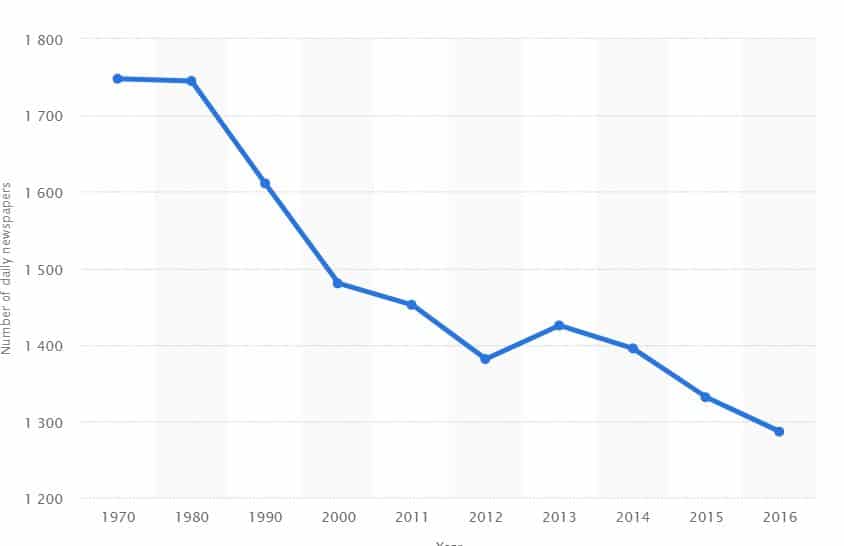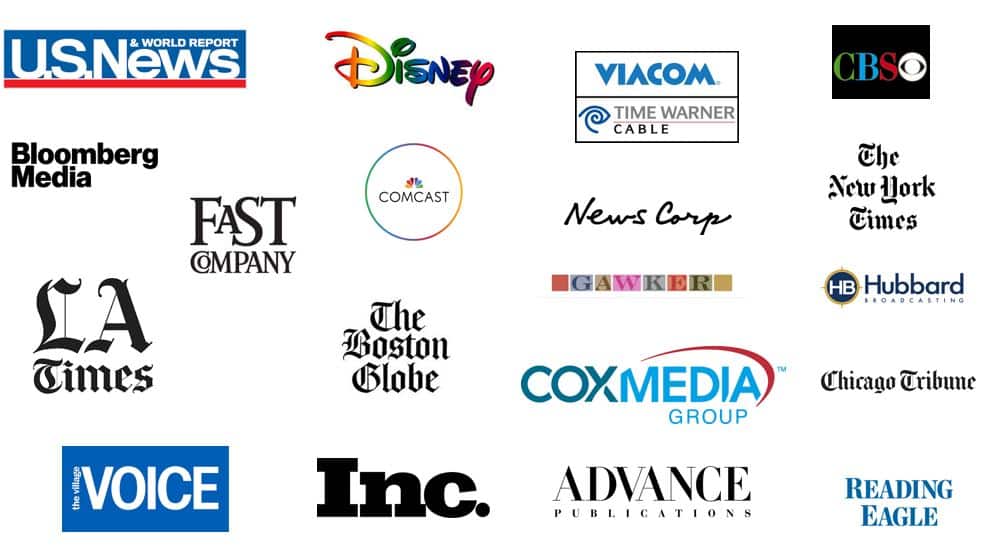A recent article in the weekend edition of the Wall Street Journal “News Industry, a Stark Divide Between Haves and Have-Nots” highlights the demise of the newspaper industry in the United States. Even though digital is taking over print, the speed of the death spiral is nonetheless surprising. What we lose with this trend is diversity of thought and any notion of local watchdogs committed to Superman’s Truth, Justice and The American Way. A recent example is the Ralph Northam racism accusation and how the news story and Northam literally disappeard with the cooperation of an amazingly well organized cartel controlling the news of his racist sympathies in medical school.
Northam and The Cartel
Recall that Northman is the current Governor of Virginia and he was accused of using blackface in a yearbook photo – a charge he first admitted and then denied. This was February 2019. In a era where racism is the the number one rallying point for students on almost every college campus there is virtually nothing being said, published, tweeted, reported, blogged, podcasted, videoed or instagrammed about Northam.
How can it be that a Google search takes me to February links and then nothing in March or April 2019 until a link to a PBS article on May 21 2019 saying that an independent report had been undertaken by a law firm hired by Virginia Medical School? The article does not say what the report found.
At its heyday in the 1970’s there were 1748 newspapers in the United States. Those dailies and weeklies provided local news and a validation of the diverse opinions of the nation at large.

The internet changed everything. As newspaper circulation declined, the industry consolidated and Gannet became the largest owner of dailies. USA today began to repurpose local news to attract local print advertisers. The revenue model was a combination of subscribers and advertisers.
Model Shifts To Digital Conversion
Facing the headwinds of social media and news on demand from Twitter, Facebook, Instagram and You Tube many newspapers attempted a digital conversion. They found, however, the prices for digital advertising were a fraction of print advertising. Also Facebook and Google dominated the local ad spend. Today 77% of local digital advertising is dominated by these two giants.
At the same time as the newspaper industry was diving like a Max737, the media world was consolidating. Billionaires like Jeff Bezos (Washington Post). Patrick Soon-Shiong (Los Angeles Times) and Warren Buffet (many including Omaha World-Herald) were buying the best newspapers. Large media conglomerates were emerging with a span of control over TV, radio, movies, social media, cable, satellites, podcasts, magazines. That consolidation has resulted in 6 corporations and 16 Billionaires controlling all forms of media and two giants, Google and Facebook, controlling most of social media. By comparison, in 1983 90% of media was owned by 50 companies and multiple individuals. Here are the six corporations and a few of the Billionaires:


Money Buying Influence Is A First Amendment Right
As alarming as this is on its own, a Supreme Court decision in 2010 called Citizens United decided that money buying political influence was protected speech under the First Amendment. In that case a conservative film about Hillary Clinton was banned under election laws. The Supreme Court ruled that conservative groups are entitled to buy votes by portraying Ms. Clinton in a critical light. Since that ruling wealthy people and corporations can buy political influence as a First Amendment Right.
One of my college roommates pursued a law career working for clients without money or power and has studied metamorphoses of the First Amendment and the state of play after Citizens United. He was obviously a Rhodes Scholarship finalist for a reason:
Monopolies Abound
“I agree that monopoly or near-monopoly issues afflict much of modern life — if you want to fly, or have a smart phone, or bank, (or ski) etc., nearly everything is controlled by a very few providers with similar interests and enormous public influence. Citizens United gave such centers of power huge leverage by effectively making money political “speech.” So, it’s hardly surprising that the “fourth estate” of the press has followed the same path to consolidation in order to survive — and consolidation almost always puts a premium on profit at the cost of all other values. And yes, CNN and Fox aren’t about news any more than Facebook is about “community.”
I’ve long said that changing a few words in the First Amendment would level the political playing field and would restore some of the balance of the pre-electronic age, when you had to build consensus to be heard. Right now, the First Amendment protects those with the most power, and maybe those with the least (like prisoners and other have-nots), and is mostly irrelevant for the vast middle class. If commercial “speech” were excluded from the First Amendment we’d all be better off.
I think if you read history, you’ll see that in the early days of America things weren’t all that different — there was lots of chicanery and powerful newspapers could control the national messaging. But the web has changed the world, and I think we need new rules to restore balance. But it’s hard to fight the forces that want to monetize and politicize everything – even time and attention – and that have no allegiance to truth, honesty, integrity, or fairness (let alone beauty, contemplation, solitude, silence, depth).



